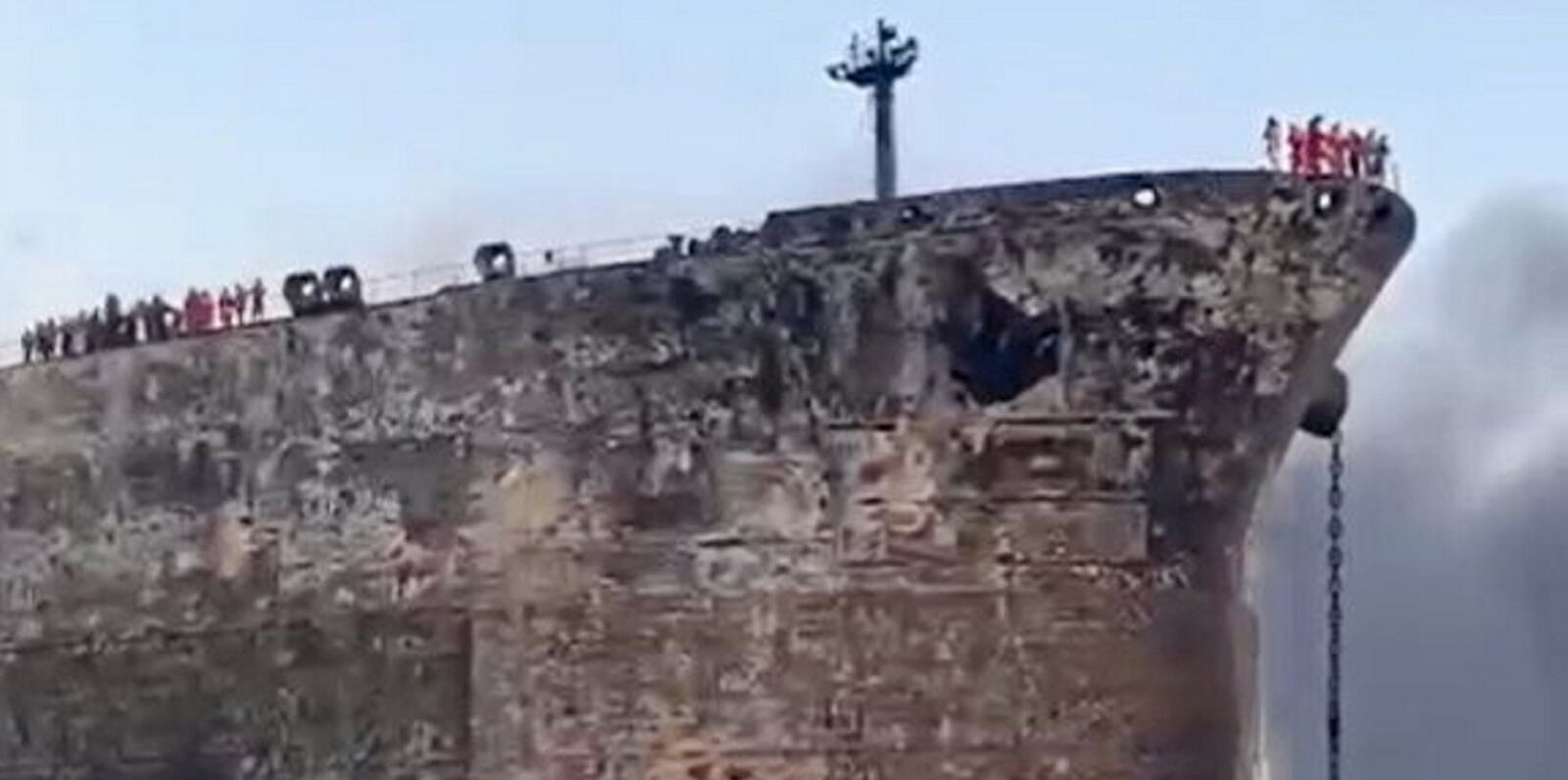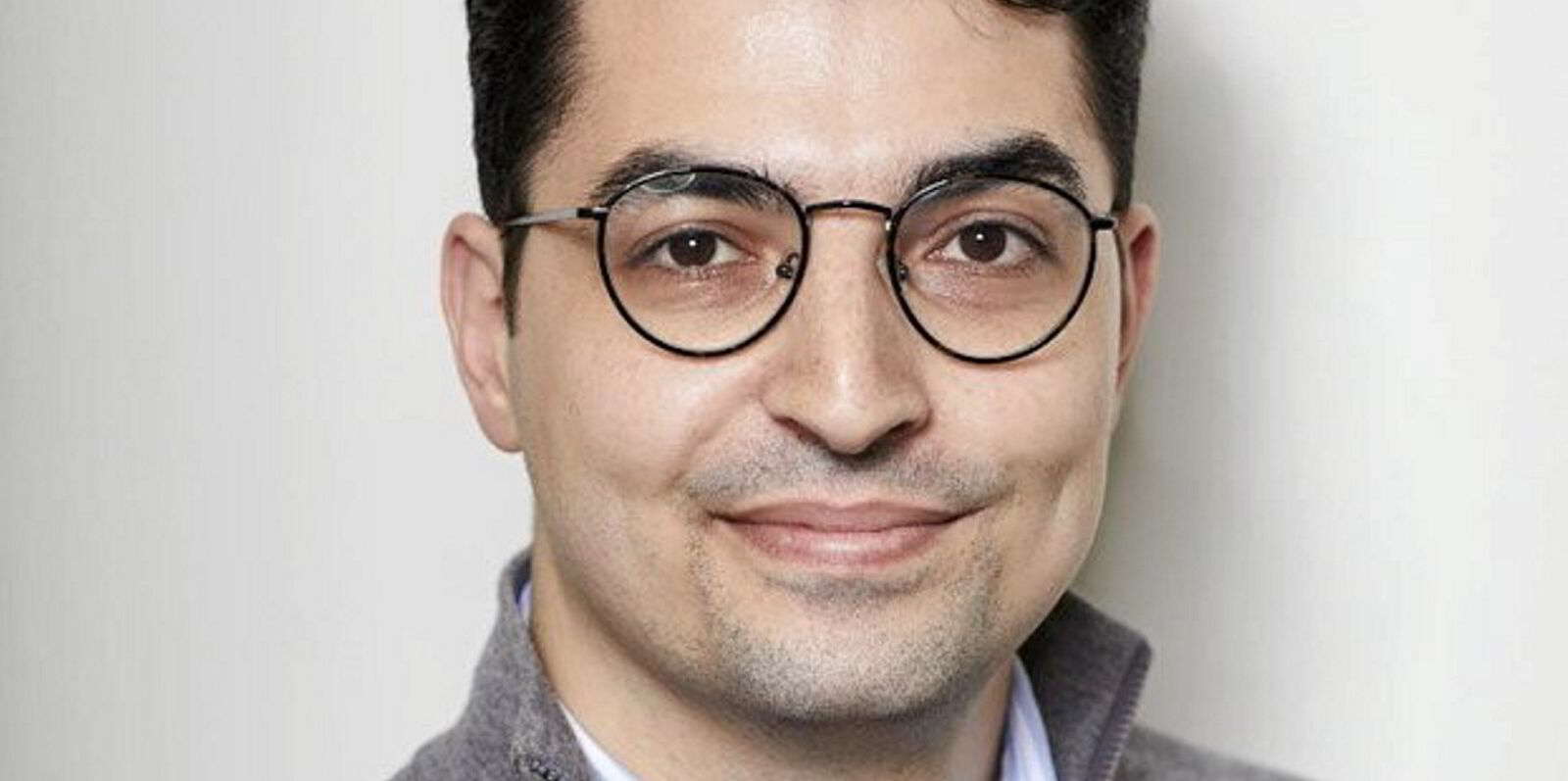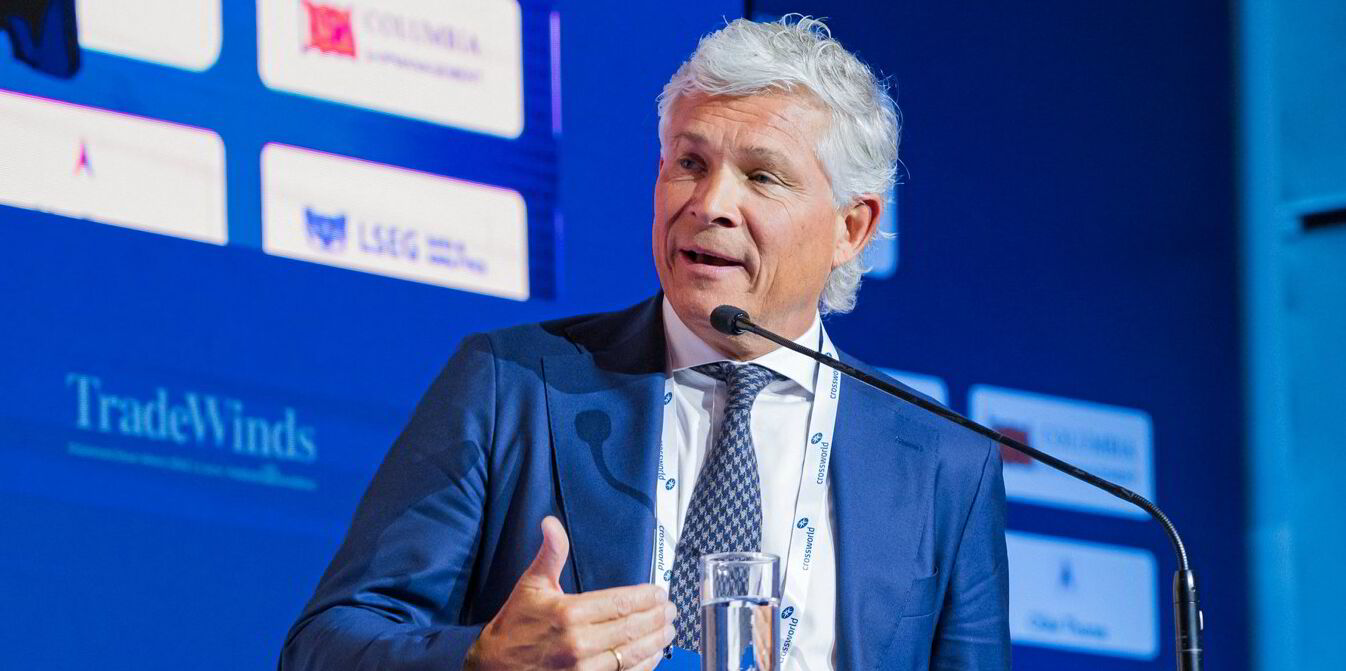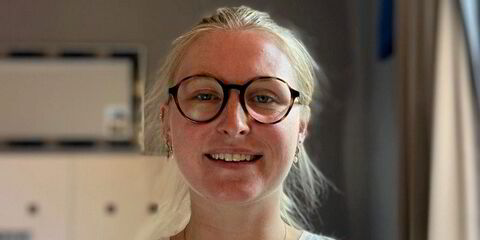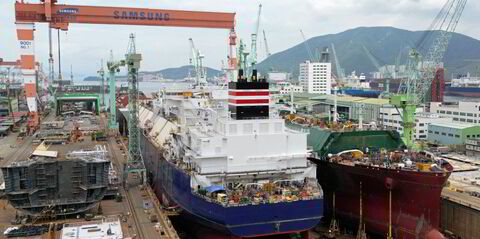A shadow fleet tanker badly damaged in a fiery collision with a Hafnia ship off Malaysia has returned to China for the first time since the accident, shipping data suggests.
The 300,000-dwt VLCC Ceres I (built 2001) and the 74,200-dwt product tanker Hafnia Nile (built 2017) caught fire and were severely damaged in July when they collided near the entrance of the Singapore Strait.
Investigations are continuing into the cause of the accident, amid outstanding questions over the ownership of Ceres I.
It is listed under the management of a Singapore company and has been linked to the trade of US-sanctioned Iranian and Venezuelan cargoes.
There was no sign of the management company, Blueshark Shipping, when TradeWinds visited its registered address after the collision. Shipping sources believe the vessel is being managed out of Dalian, China.
The Ceres I, which was not carrying an oil cargo at the time of the accident, was off the coast of Malaysia and Vietnam until last week, when it headed north-east to China. On Thursday, it was off Zhoushan port.
The tanker has rarely called at Chinese ports over the past three years; it has largely offloaded cargoes in ship-to-ship operations outside port limits off Malaysia.
It called at a Chinese shipyard earlier this year, but last offloaded an oil cargo at a Chinese port in February 2021, according to Kpler ship tracking data.
It called at Iran’s Kharg Island earlier this year and Venezuela in 2023, the data suggests.
The Hafnia Nile was towed to Singapore in September after the remaining naphtha cargo was removed.
Singapore-based Hafnia said last month that the case was still under investigation by authorities in Malaysia and Singapore.
Chief executive Mikael Skov said last month that the ownership behind Ceres I remained unclear.
The scene of the accident had 40 to 50 ships permanently at anchor while turning on and off their AIS, he said.
“I think fundamentally it’s sad to see the regulators have to wait for that disaster to happen before they do anything about it,” Skov told a webinar.
Read more
- Braemar head of handymax leaves to join Peter Livanos’ DryLog Trading
- Dark tankers turning off AIS pose ongoing threat after VLCC smash, says Hafnia’s Mikael Skov
- Frontline, bad actors and the Upside Down: How one shipowner speaks for mainstream shipping
- Investigators board fire-damaged Hafnia tanker in collision probe
- Shadow fleet VLCC hit-and-run resurrects oil spill ghosts for shipping
